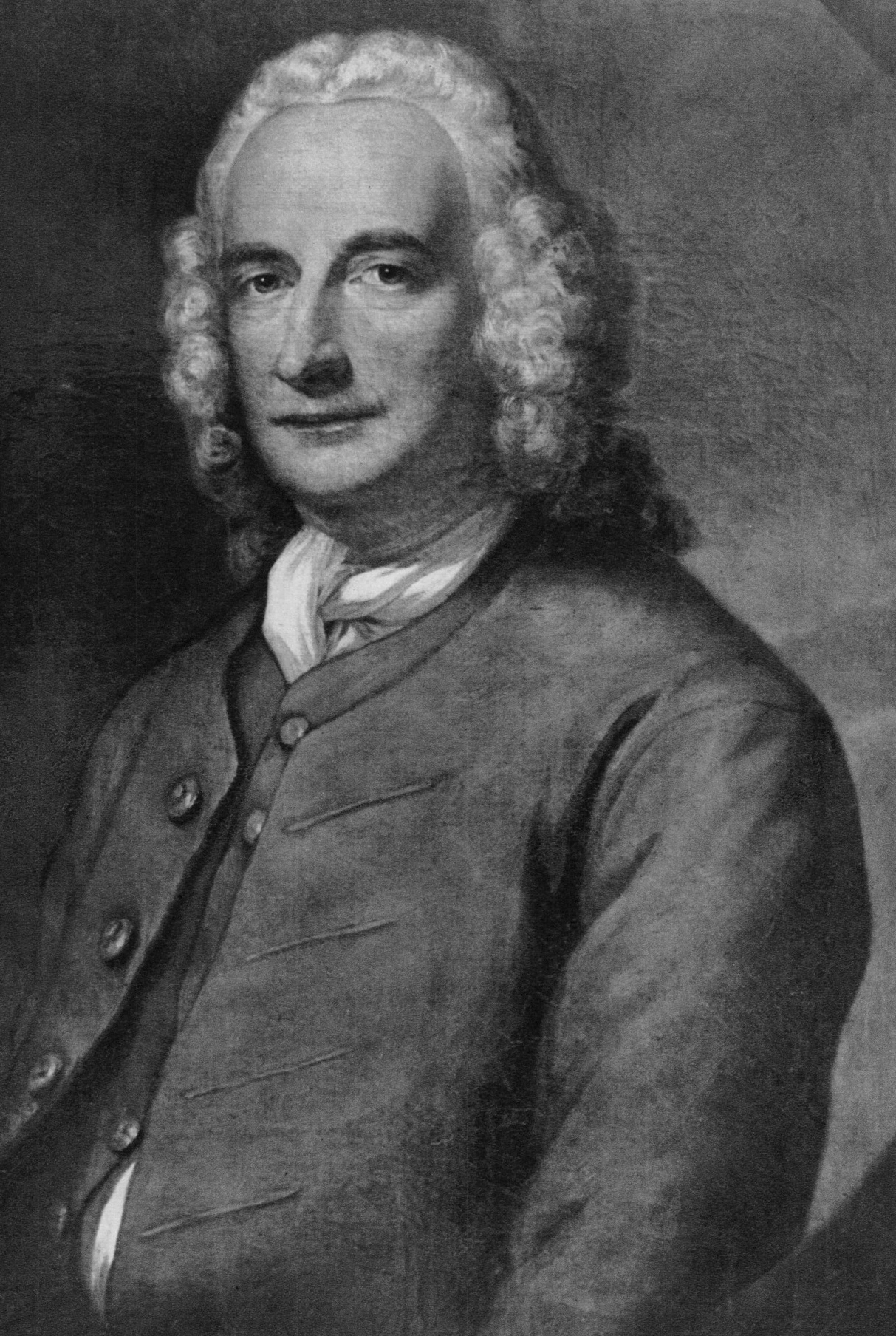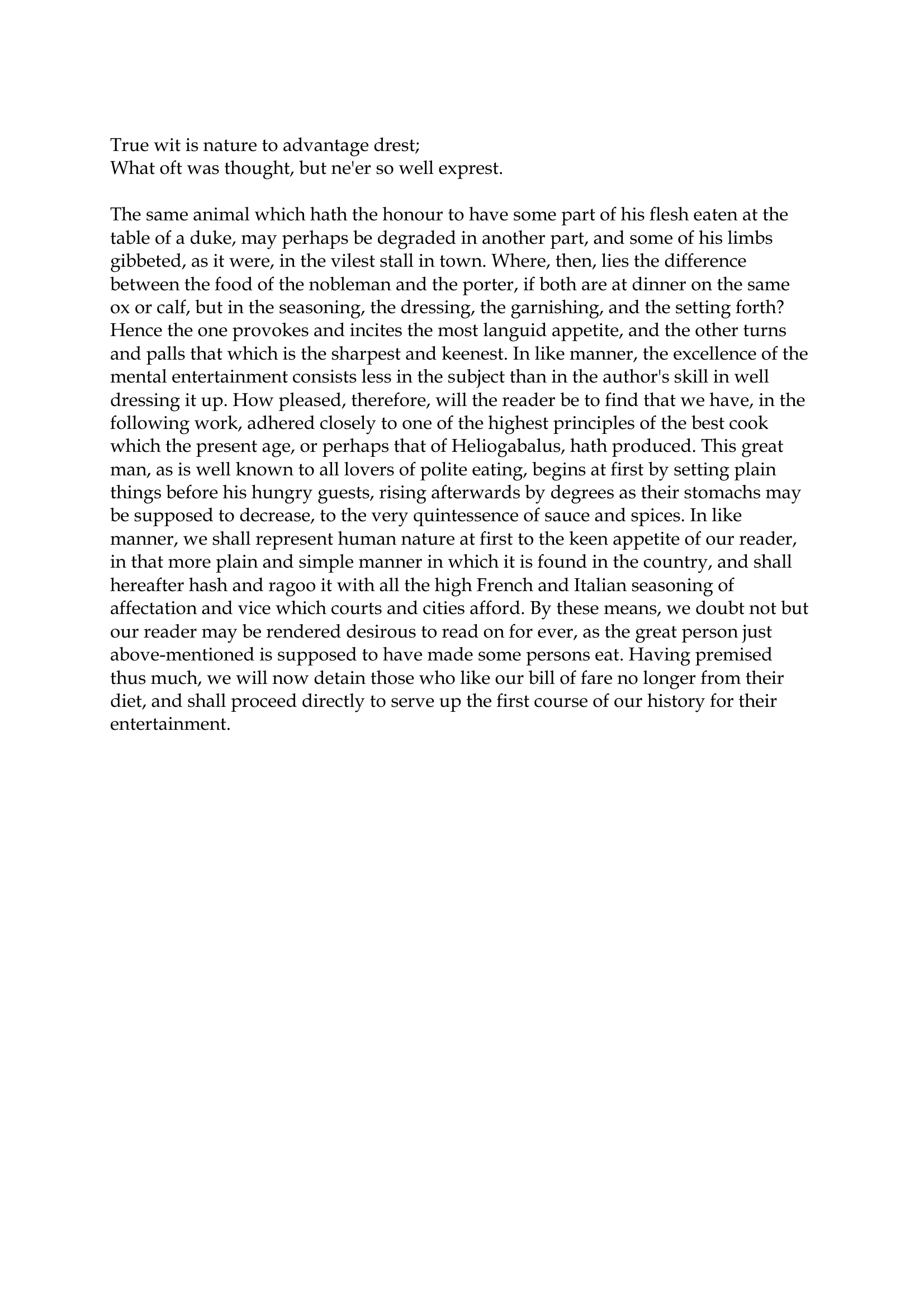Tom Jones (1749) Henry Fielding Book I -- Chapter 1 An author ought to consider himself, not as a gentleman who gives a private or eleemosynary treat, but rather as one who keeps a public ordinary, at which all persons are welcome for their money.
Publié le 05/04/2015

Extrait du document


«
True wit is nature to advantage drest;
What oft was thought, but ne'er so well exprest.
The same animal which hath the honour to have some part of his flesh eaten at the
table of a duke, may perhaps be degraded in another part, and some of his limbs
gibbeted, as it were, in the vilest stall in town.
Where, then, lies the difference
between the food of the nobleman and the porter, if both are at dinner on the same
ox or calf, but in the seasoning, the dressing, the garnishing, and the setting forth?
Hence the one provokes and incites the most languid appetite, and the other turns
and palls that which is the sharpest and keenest.
In like manner, the excellence of the
mental entertainment consists less in the subject than in the author's skill in well
dressing it up.
How pleased, therefore, will the reader be to find that we have, in the
following work, adhered closely to one of the highest principles of the best cook
which the present age, or perhaps that of Heliogabalus, hath produced.
This great
man, as is well known to all lovers of polite eating, begins at first by setting plain
things before his hungry guests, rising afterwards by degrees as their stomachs may
be supposed to decrease, to the very quintessence of sauce and spices.
In like
manner, we shall represent human nature at first to the keen appetite of our reader,
in that more plain and simple manner in which it is found in the country, and shall
hereafter hash and ragoo it with all the high French and Italian seasoning of
affectation and vice which courts and cities afford.
By these means, we doubt not but
our reader may be rendered desirous to read on for ever, as the great person just
above-mentioned is supposed to have made some persons eat.
Having premised
thus much, we will now detain those who like our bill of fare no longer from their
diet, and shall proceed directly to serve up the first course of our history for their
entertainment..
»
↓↓↓ APERÇU DU DOCUMENT ↓↓↓
Liens utiles
- Le personnage de TOM JONES d’Henry Fielding Tom Jones
- Henry Fielding: The History of Tom Jones, a Foundling (Sprache & Litteratur).
- Barry Bonds Barry Bonds, born in 1964, American professional baseball player, one of the greatest hitters of all time but who was indicted on criminal charges relating to performance-enhancing drugs.
- Tom Jones, histoire d'un enfant trouvé [Henry Fielding] - Fiche de lecture.
- Tom Jones, histoire d'un enfant trouvé [Henry Fielding] - fiche de lecture.










